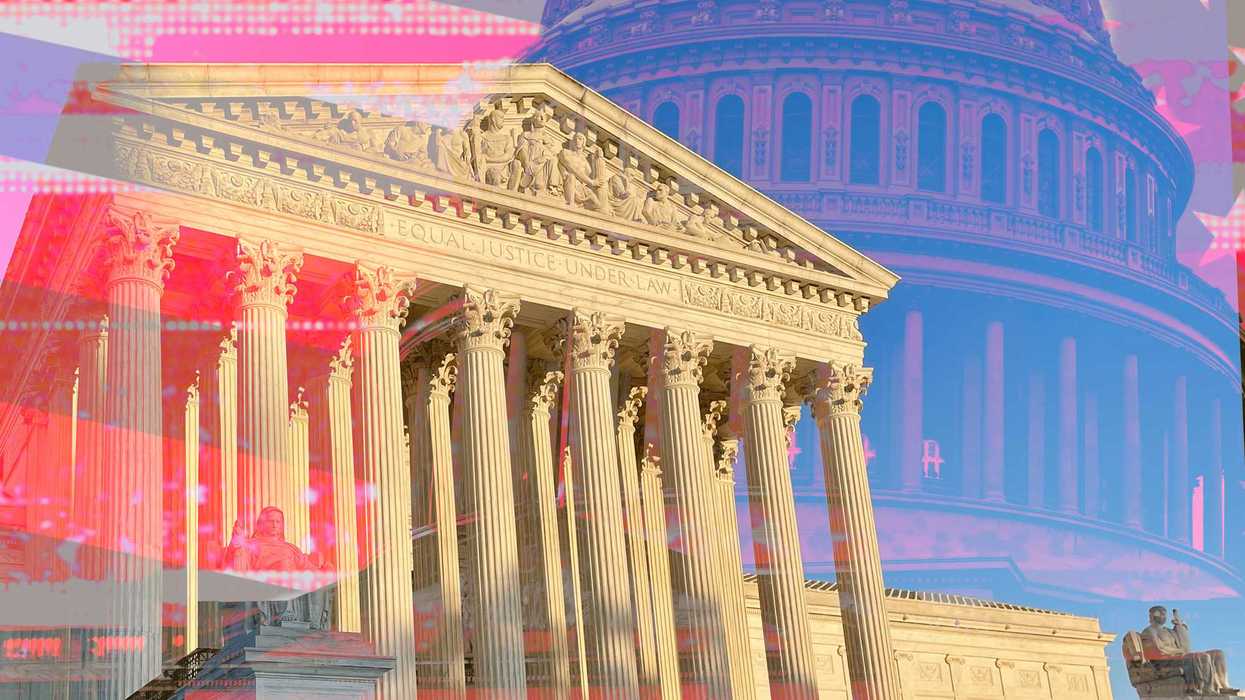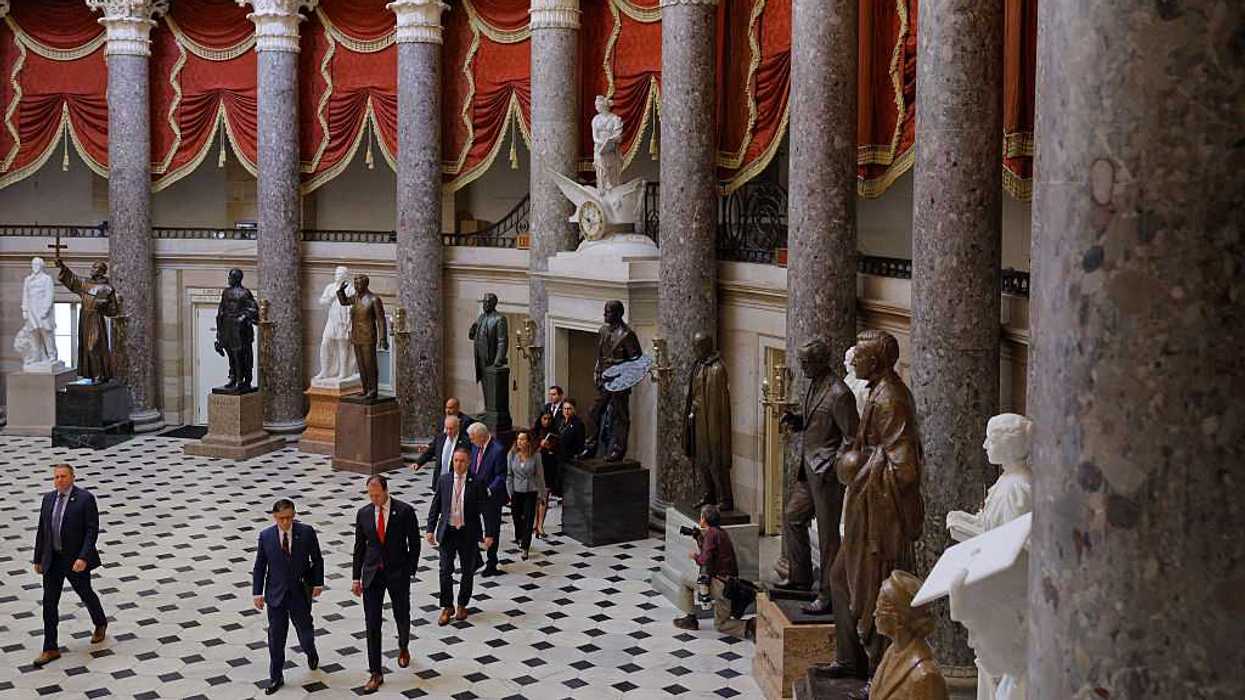Younger House members are more likely to work across the aisle than their older colleagues, a new study shows.
Bipartisanship is extraordinarily hard to come by on Capitol Hill, one of the main reasons why the legislative branch has devolved into near-total dysfunction and further hobbled the regular operations of democracy. The report provides a glimmer of hope the next generation of lawmaker leaders may be willing to change that.
The findings were released this week by the Millennial Action Project, which was created to champion young legislators committed to bipartisanship, and the Lugar Center, a think tank promoting civility and collaboration across party lines.
For the study, researchers created a formula to quantify the bipartisan tendencies of every current House member. It was based on how often in this term they have signed on to bills introduced by someone of the opposite party, and how many of their own proposals have attracted sponsorship from across the aisle. (The numbers are one of the few ways to quantify behavior that often manifests itself in subjective acts of behind-closed-doors cooperation.)
The results were compared to how members of Congress behaved from 1993 to 2018, a period when partisan loyalties soared while collaborative legislating fell into disfavor and disuse each year more than the last. High scores identified members acting in a more bipartisan way than the average of the previous quarter-century.
One in six House members, 75 of them, were identified as young because at the start of this Congress they had not yet turned 45. But they accounted for 22 percent of the members who scored above zero for bipartisanship. (That group of 185 members represents 43 percent of the House.)
"This correlation is all the more impressive in that it has held true for three Congresses in a row and both younger Republicans and younger Democrats are scoring above the historical average," said Dan Diller of the Lugar Center.
Overall, 56 percent of younger members were in positive territory for being more bipartisan than the recent historical average — but that was true of only 40 percent of their older colleagues.
Steven Olikara, who runs the Millennial Action Project, said this study affirms that "the next generation of leaders is already redefining how we govern."
Younger members with the highest bipartisanship scores:
- 1. Democrat Josh Gottheimer of New Jersey
- 2. Republican Lee Zeldin of New York
- 3. Republican Elise Stefanik of New York
- 4. Democrat Joe Cunningham of South Carolina
- 5. Democrat Abigail Spanberger of Virginia
Younger members with the lowest bipartisanship scores:
- 73. Democrat Ayanna Pressley of Massachusetts
- 72. Democrat Alexandria Ocasio-Cortez of New York
- 71. Democrat Ilhan Omar of Minnesota
- 70. Republican Michael Cloud of Texas
- 69. Democrat Rashida Tlaib of Michigan
Older members with the highest bipartisanship scores:
- 1. Republican Brian Fitzpatrick of Pennsylvania
- 2. Republican John Katko of New York
- 3. Republican Peter King of New York
- 4. Republican Don Young of Alaska
- 5. Republican Chris Smith of New Jersey
Older members with the lowest bipartisanship scores:
- 360. Republican Gary Palmer of Alabama
- 359. Republican Rick Allen of Georgia
- 358. Republican Chip Roy of Texas
- 357. Republican Jim Jordan of Ohio
- 356. Republican Tom McClintock of California



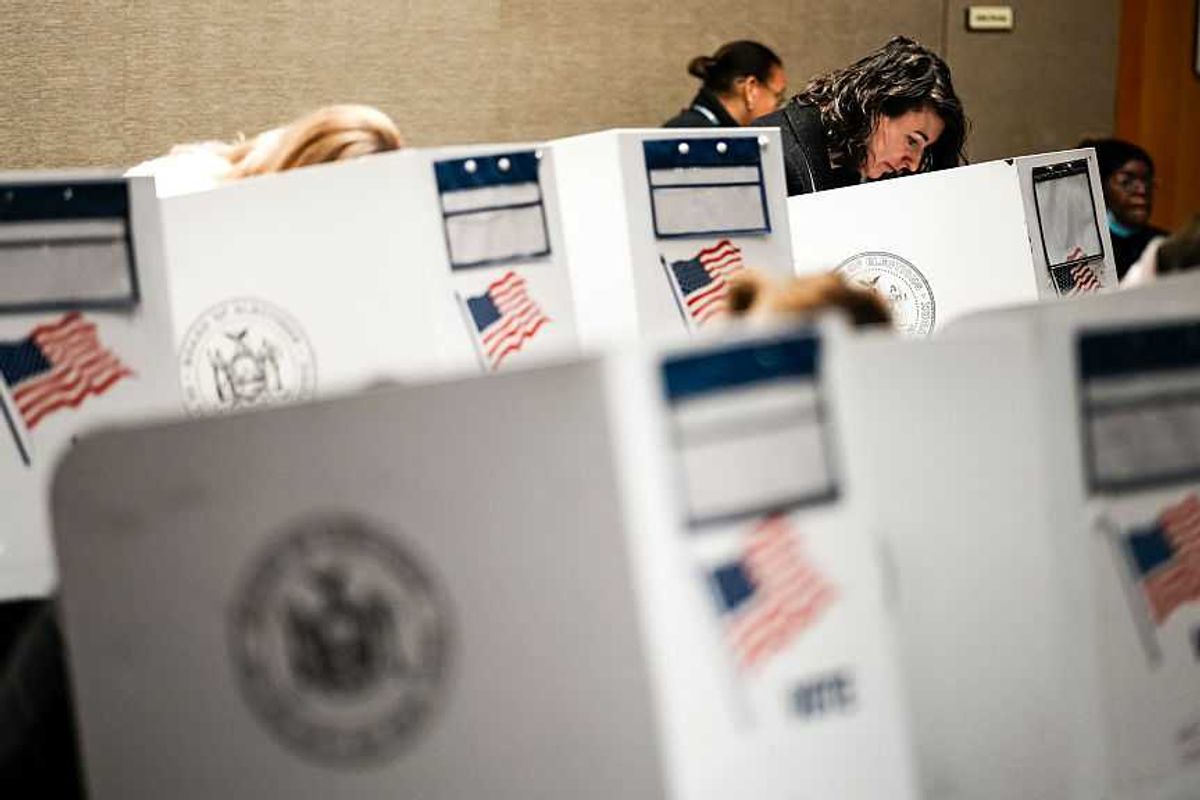

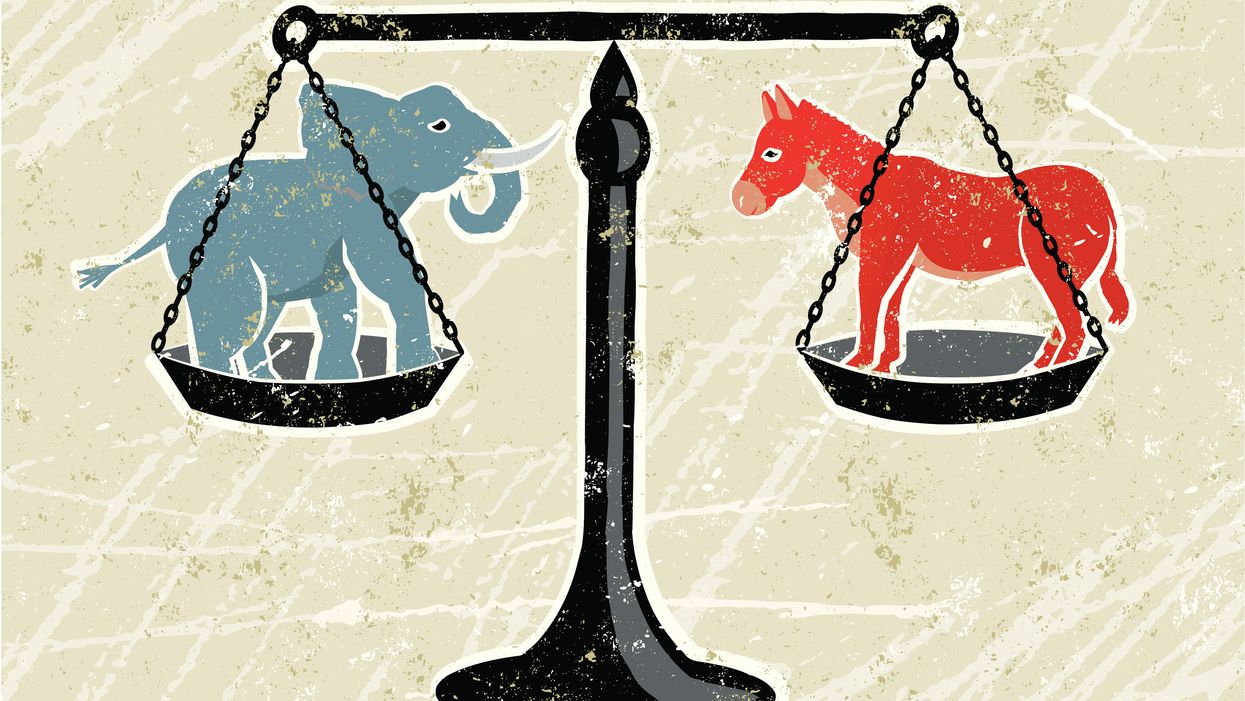


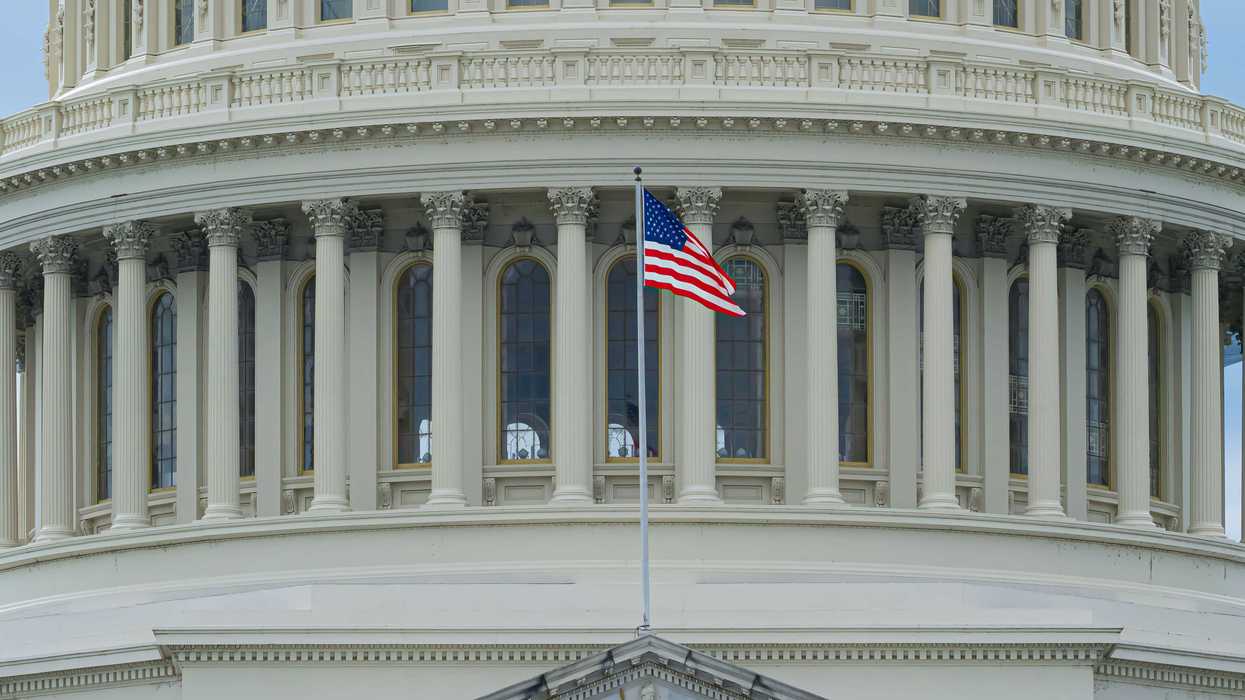

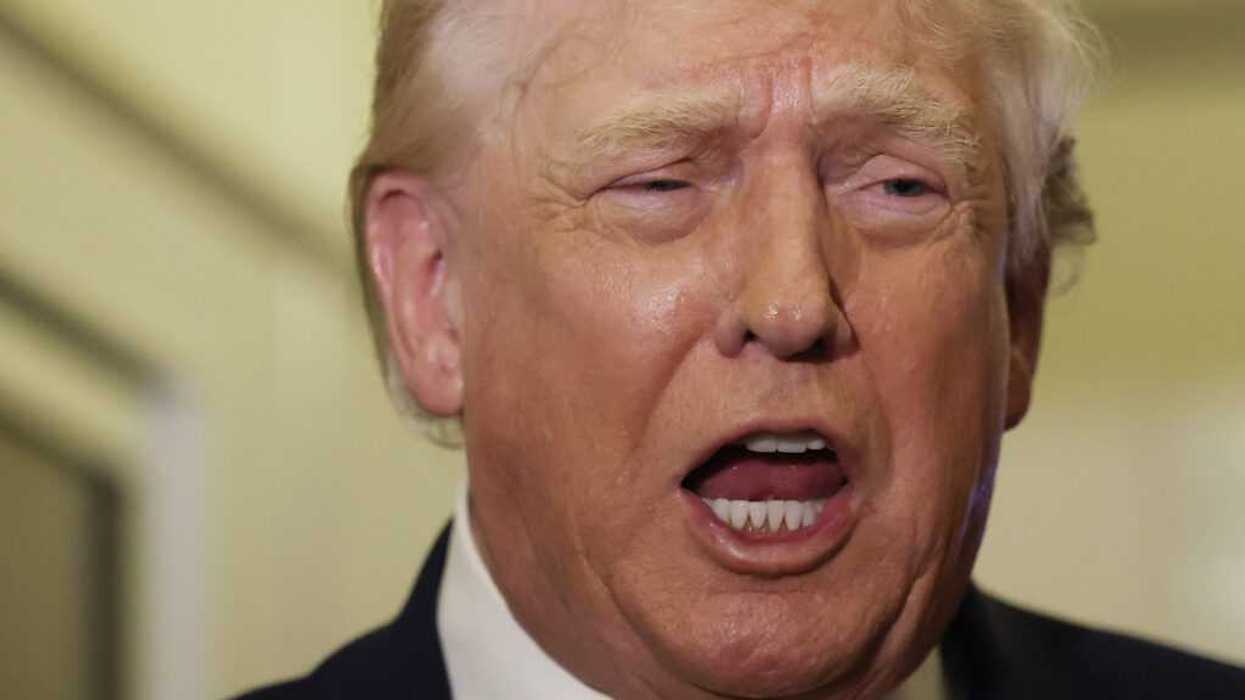








 On Jan. 6, 2021, a political rally turned into an insurrection as
On Jan. 6, 2021, a political rally turned into an insurrection as  Michelle Witthoeft, Ashli Babbitt’s mother, participates in a demonstration in support of insurrectionists who were arrested and charged following the January 6, 2021 attack on the U.S. Capitol. (Tasos Katopodis/Getty Images)
Michelle Witthoeft, Ashli Babbitt’s mother, participates in a demonstration in support of insurrectionists who were arrested and charged following the January 6, 2021 attack on the U.S. Capitol. (Tasos Katopodis/Getty Images)